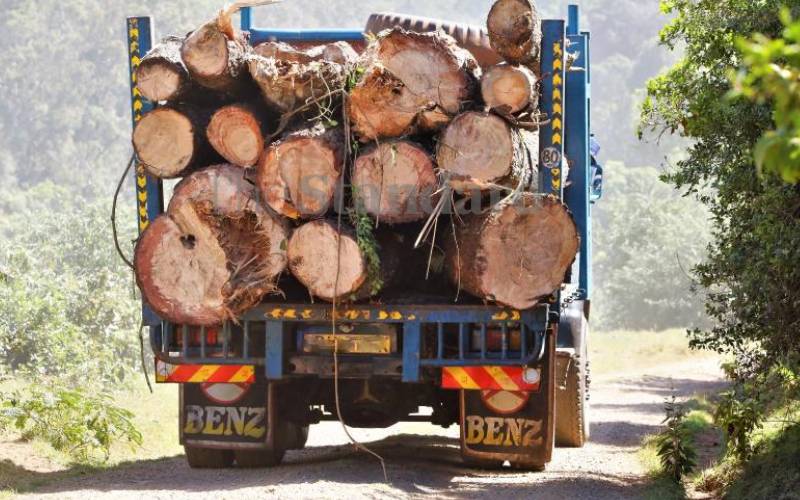×
The Standard e-Paper
Home To Bold Columnists

Lorry ferrying logs, Kabaru forest. [Mose Sammy, Standard]
Kenya has the second-lowest tree cover among East African countries behind Uganda, Tanzania, and Rwanda, but ahead of Burundi. At only 7.2 per cent, the tree cover is below the globally recommended 10 per cent which is also the recommended cover in the constitution.